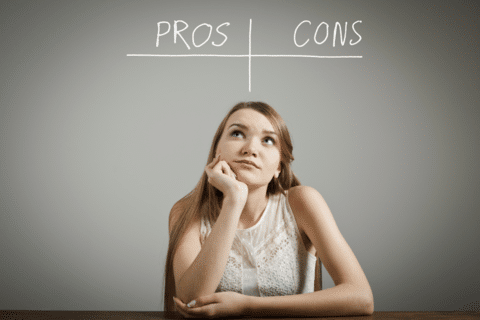How To Answer “What Are Your Greatest Strengths & Weaknesses?” – Drilling Down Into The Job Interview

We explore common job interview questions and provide insightful advice to craft compelling answers.
One of the trickiest aspects about sitting for any job interview is the challenge of putting yourself forward as a likeable and capable candidate. You never want to sound too boastful about your skills and accomplishments. Conversely, it’s never a good idea to come across as self-deprecating or meek. Finding the right balance is key to demonstrate that you’re confident enough in your abilities but sufficiently self-aware to know you have room to grow.
Maintaining this balancing act is particularly difficult when faced with the “What are your greatest strengths and weaknesses?” question. It’s a question typically asked in early-stage interview rounds and can be a real toughie to answer. For most candidates, it can feel as if they’re being set up for a fall, no matter how they answer. Speaking about your strengths can feel self-congratulatory. And who wants to reveal a weakness that could jeopardise their candidacy?
As with all common job interview questions, understanding the true intention behind the prompt will make it much easier to anticipate the moment and prepare an answer that provides recruiters with the information they’re looking for.
Why do interviewers ask this question?
 The surprising truth is that most interviewers are not overly interested in your specific strengths and weaknesses. The question goes deeper than simply reeling off a list of good and bad qualities. Interviewers are more concerned about how you talk about these qualities and how your answer reflects on you.
The surprising truth is that most interviewers are not overly interested in your specific strengths and weaknesses. The question goes deeper than simply reeling off a list of good and bad qualities. Interviewers are more concerned about how you talk about these qualities and how your answer reflects on you.
The way you present your answer will reveal a lot about the type of person you are. Are you honest and self-aware? Are you likely to hog the limelight when working in a team? Can you handle criticism and show a willingness to learn? All this information will help interviewers form a clearer understanding of how you’ll potentially fit in within the wider team and whether you’re a candidate who can be trusted to grow with the company.
3 top tips to answer “What are your greatest strengths & weaknesses?” in a job interview
Now that we have a better understanding of the intention behind the question, it’s easier to prepare the right kind of answer. As a general piece of advice, never answer by simply listing your strengths and weaknesses. Saying that your strengths are “great leadership skills, easy to work with, and hardworking” is no answer at all, and this approach should be avoided at all costs.
Another general tip is to always make sure you have some qualities in mind to talk about. You never want to say, “I don’t know what my strengths are” or “I don’t believe I have any weaknesses”. These types of responses will only create awkward silences in the room as interviewers press you for details.
That’s why it’s essential to first sit down and reflect on the qualities you wish to present in the interview. Once you have a list of general attributes in hand, you can begin crafting a compelling answer by following these three insightful tips.
 1 – Craft a story around your strengths and weaknesses
1 – Craft a story around your strengths and weaknesses
For each main strength and weakness you bring up, it’s important to have a real-life anecdote attached to it. Having a story that supports and contextualises each quality will enable recruiters to better understand why you wanted to highlight these particular aspects in the first place. This approach also ensures that recruiters will get to know you better in the process.
So, if you’re speaking about a strength, describe a time in your job where this quality proved particularly useful. If you’re an excellent public speaker, share an instance when your presentation skills helped secure your company a new client, for example. Likewise, when mentioning a weakness, do not be afraid to show how such qualities have stopped you from achieving something or performing effectively in the past. For example, if you’re naturally a shy person, you may wish to highlight a time when your shyness stopped you from voicing your opinions. This may have led to a moment of misunderstanding with your team or manager.
Presenting an answer that is attached to an example, rather than a vague list, will immediately leave a stronger impression of you as a person.
2 – Make your answer relevant to the job
Once you’ve established a story around your strengths and weaknesses, you’ll also want to contextualise those qualities for the role you’re applying for.
When discussing a strength, you can then move onto how you believe this quality will be of value to this specific position with this company. Returning to our previous example, you could say that since you’ve honed your public speaking and presentation skills, and they’ve proved effective in the past, you’ll be able to deliver similar results within the new role from the get-go.
Regarding weaknesses, this is your chance to show how you’ve learnt from previous experiences to improve and grow. You don’t need to have overcome your weakness entirely. But you may have found effective ways to work around them so that you won’t face similar problematic situations going forward. If you feel your shyness is a weakness, you could show how you’ve learned that you find it easier to speak to people one-on-one, rather than in a group scenario. So, because of this insight you actively seek to speak to people individually to clarify any issues or make sure you’re on the same page. All in all, this demonstrates a growth trajectory and also gives recruiters an opportunity to understand how they can best work with you.
3 – Be honest and genuine in your answer
And last of all, be honest in your answers. It may seem like a no-brainer, but it’s very important to be honest when talking about your strengths and weaknesses. You never want to talk about qualities that do not align with the reality of who you are. First of all, you can easily get caught out, sooner or later, which is never a good move. But more importantly, when you’re speaking about authentic experiences it’s bound to strike a more genuine note with recruiters.
If you inflate a strength or achievement, there’s a chance you’ll get stuck on details when pressed to expand upon your answer. There’s nothing worse than a candidate who appears to be making up lies on the spot. And if you’re choosing a weakness to demonstrate some miraculous learning curve, it can come off as calculating and manipulative. Remember, recruiters are highly experienced. They speak to potentially 100s of candidates as part of their job, so they can quickly detect when someone is being genuine or not.
For more insightful tips on how to approach your next interview, be sure to check out our extensive guides and articles in our Candidates Resources.